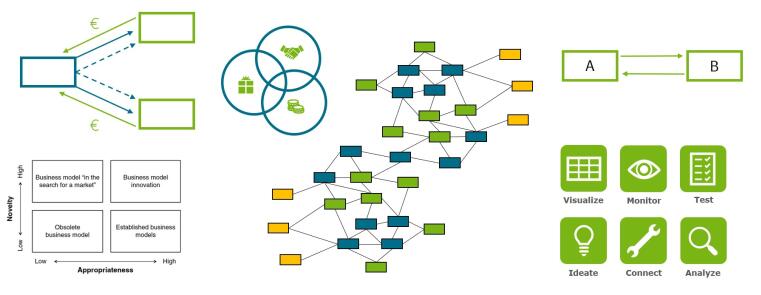
Business Models
In addition to the development of new products and processes, the development of new business models is increasingly playing a role for companies in research-intensive industries such as chemicals and pharmaceuticals in order to commercialize new technologies and respond to market changes.[1] Our team therefore examines drivers, effects and strategies for developing new business models.
Our work focuses on identifying opportunities and challenges of new business models, in particular new platform business models and sustainable business models.[2] For example, together with partners from industry such as the German Chemical Industry Association (VCI) and the Rhein-Main Cluster Chemicals & Pharmaceuticals, we examined what skills companies need to develop new business models. [3] In addition, our team is investigating new business models in the context of digitalization.[4]
Another focus of our work in this area is the financing of new business models through venture capital. For example, we examine structural and institutional aspects of corporate venture capital units.[5,6]
[1] von Delft, S., & Zhao, Y. (2021). Business models in process industries: Emerging trends and future research. Technovation, 105, 102195.
[3] https://www.provadis-hochschule.de/fileadmin/hochschule/Megatrends_Geschaeftserfolg_Chemie_Pharma.pdf
[4] Gehde, K. M., Rausch, F., & Leker, J. (2022). Business model configurations in digital healthcare—a German case study about digital transformation. International Journal of Innovation Management, 26(03), 2240018.
[5] Ahlfänger, M., Kohut, M., & Leker, J. (2020). Reconciling competing institutional logics in corporate venture capital units. International Journal of Innovation Management, 24(08), 2040004.
[6] Kohut, M., Ahlfänger, M., & Leker, J. (2021). The impact of strategy and structure on the performance of corporate venture capital units. International Journal of Innovation Management, 25(08), 2150094.

